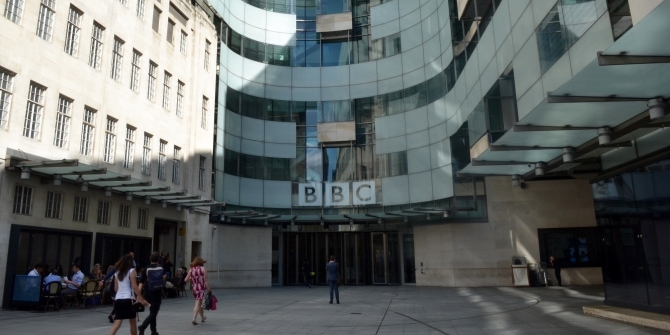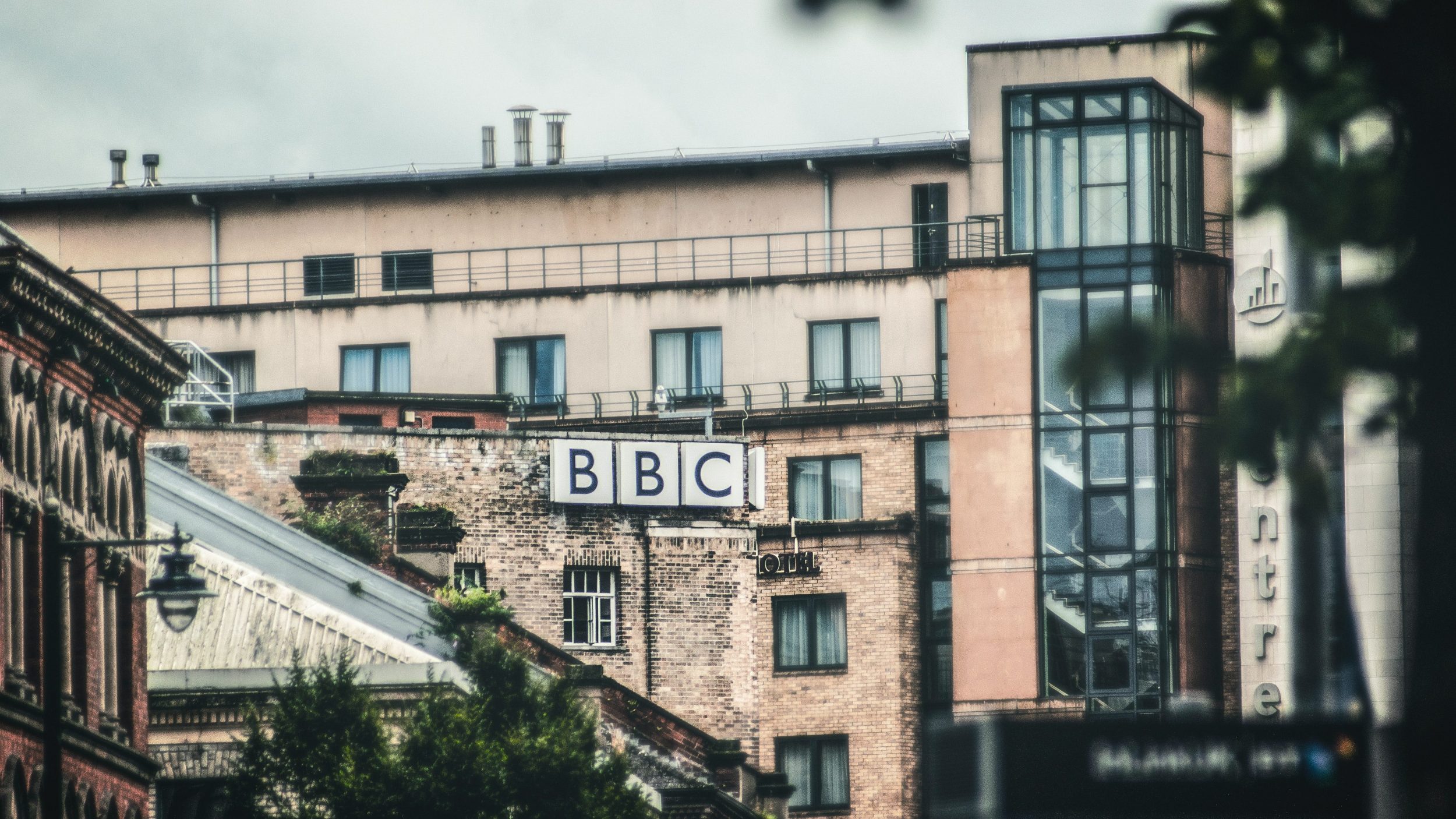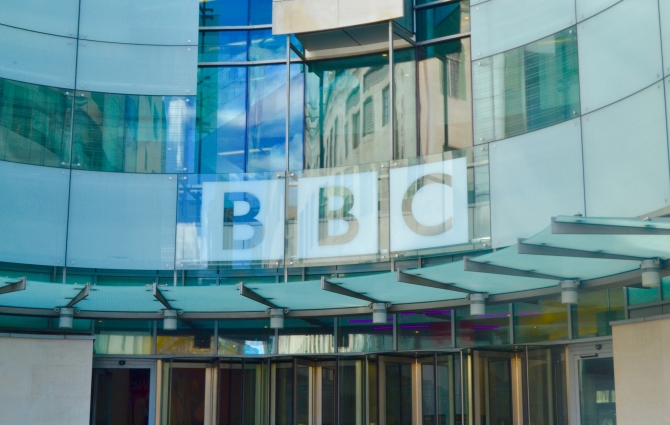 As UK public broadcaster the BBC celebrates its 100th birthday, its influence continues to spread far beyond UK borders. Jessica Berman of the University of Maryland, Baltimore County, writes about the role of the BBC World Service as an international news source but also as a vehicle of soft power, stressing that we should insist on its independence.
As UK public broadcaster the BBC celebrates its 100th birthday, its influence continues to spread far beyond UK borders. Jessica Berman of the University of Maryland, Baltimore County, writes about the role of the BBC World Service as an international news source but also as a vehicle of soft power, stressing that we should insist on its independence.
As the BBC turns 100 we should celebrate its extraordinary history as a public service broadcaster bringing news and other programming to audiences around the globe. In 2020-2021 the BBC announced that its World Service achieved its highest-ever audience, with an average of close to 500 million listeners globally each week. The BBC brings news to audiences in more than 40 languages, with newer additions like Igbo, Pidgin, and Yoruba growing in strength each year.
Older people among us still remember tuning into the BBC World Service radio as a prime source for allied news during the second world war. Its long history of offering reliable information to those in conflict zones or under censorship continues, as shown by its strengthening of programming in Russian and Arabic in recent years. Since its founding in 1932, the BBC’s international output has been crucial to those seeking fair, honest and comprehensive news and cultural broadcasts around the world.
At the same time, as scholar Simon Potter notes, the BBC’s World Service has always been a vehicle for British soft power. In 1932, when the BBC first embarked on its Empire service, founding director John Reith called it:
A unique opportunity to foster bonds of understanding and friendship between the peoples of Britain’s scattered dominions and the mother country, and to bring to Britons overseas the benefits already enjoyed by the British public at home.
Reith had advocated for such a service since the beginning of the BBC, making clear the political and social dimension of its founding mission. Although the BBC is a public-service corporation separate from the British government and has seen its fair share of conflicts with those in power, its mission has been and continues to be informed by British values and interconnected to Britain’s future.
Empire Radio
The rise of Empire Radio in the 1930s and 1940s shows how the BBC navigated the conflicting roles of bringing the benefits of broadcasting to listeners in the British colonies while forging stronger bonds across the empire. Given a mission to educate, inform and entertain, the Empire Service (later World Service) developed programs to reach those in the colonies and dominions and allow them to access British civilisation and its values. As Potter puts it, “the BBC voluntarily participated in the overseas projection of Britishness as part of its public-service remit”.
For example, the Eastern Service gathered many celebrated writers into its ranks, with George Orwell directing the India Section from 1941 to 1943. A photograaph shows Orwell with famous writers T.S. Eliot and William Empson and emerging figures from across the empire, including Indian writer Mulk Raj Anand and Jamaican writer Una Marson at work on a literary magazine called “The Voice” for broadcast to India. Peter Kalliney argues that these gatherings at the BBC were crucial for building networks of colonial and metropolitan writers. Orwell certainly hoped that programs like “Through Eastern Eyes” or “We Speak to India” would bring east and west together.
And yet, the programming was often naïve and Anglocentric. For instance, The Voice highlighted T.S. Eliot reading his difficult poem Little Giddings which demanded advanced literacy in English, not attained by many Indians at the time. Many programs relied on listeners to be interested in life in London and the progress of the second world war from the British perspective.
By contrast, my research has shown that All India Radio (AIR), India’s developing public broadcasting network modelled on the BBC, offered a wider range of programming focused on Indian listeners, their concerns and their regional languages and cultures. AIR devoted airtime to Indian music and developed cadres of performers to produce radio plays in Indian languages.
The program listings of The Indian Listener, AIR’s official magazine, in the early 1940s show excerpts from the Mahabharata, Indian classical music, a Hindustani lecture on religion in public life, a feature on the changing role of women and programmes for villagers in Tamil, Telugu, or Bengali. There was news analysis in multiple languages. In other words, AIR was more varied, more in-tune with local languages and interests and resisted the primacy of the BBC’s civilising mission.
Caribbean Voices
BBC radio programming for the Caribbean was never as extensive as it was for India nor did a regional broadcaster emerge in the colonial West Indies. But during the 1940s and 1950s it broadcast the celebrated weekly Caribbean Voices programme, which was founded in 1943 by poet, journalist and editor, Una Marson.
This helped to develop the careers of many of the best writers from the region, including Sam Selvon and Dereck Walcott. Caribbean Voices would champion local writing and language, spoken on air by those from the islands, in a way no other entity had done before.
But, as in India, the BBC’s Caribbean programming was also meant to extend the British connection throughout the region, especially during wartime. It arose from Marson’s “morale-boosting” earlier program West Indies Calling for people from the islands serving the war effort and continued to be part of a constellation of broadcasts for the region meant to knit the islands to each other and to Britain.
While these programmes sometimes acknowledged differences across the islands, they also reflect the British government’s interest in treating the West Indies as a single region in response to unrest as well as the threat of growing US power in the Caribbean. The BBC’s regional approach and its limitations can help us see both the promise and failures of the West Indian Federation, the short-lived political union between various islands in the Caribbean between 1958 and 1962.
These examples point to the complex relationship between the BBC’s Empire Service and British political interests which have implications for today. Never a direct vehicle for government power, the broadcaster nevertheless has participated in advancing “Britishness” around the globe.
As we mark the BBC’s centenary and celebrate the continuing achievements of the World Service, we should remember how British soft power has often guided its history and insist that it is able to operate independently now and into the future.![]()
This article is republished from The Conversation under a Creative Commons license. Read the original article. This article represents the views of the author and not the position of the Media@LSE blog, nor of the London School of Economics and Political Science.





